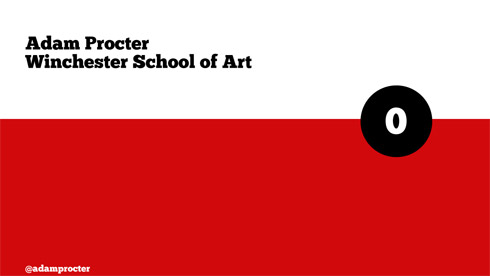User Experience (a hidden barrier) in OER
Adam Procter, Winchester School of Art
More Open Education Resources (OER) and learning environments are being created and starting to mature and there are a number of barriers to learning and creator participation. One often overlooked barrier that has been given less attention, especially within OERs, is user experience (UX). UX is the way a person feels about using a product, system or service. We are creatures with emotional ne...
Abstract
More Open Education Resources (OER) and learning environments are being created and starting to mature and there are a number of barriers to learning and creator participation. One often overlooked barrier that has been given less attention, especially within OERs, is user experience (UX). UX is the way a person feels about using a product, system or service. We are creatures with emotional needs and, in the rush to get great content open and available sometimes the usability, the wow factor and good design principles get left by the wayside. Adam demonstrated ways to think about UX for your OER and learning environments and why this is an important factor in helping engage learners with our educational materials.
‘The real payoff comes when we can make that remarkability last. When we can make people continually feel our work is worthy of discussion. When—for weeks, months, maybe even years—the people who engage with our work continue to sing its praises to everybody they meet’– (Jared Spool in Walter, A. Designing for Emotion).
Walter, A. (2011) Designing for Emotion, A Book Apart.
http://www.abookapart.com/products/designing-for-emotion
Biography
Adam Procter is a Senior Teaching Fellow in Digital Media at Winchester School of Art and is also the Technical Services Officer, managing technical resources for the School. He is a member of the Creative Commons Network, a mobile app developer and open education resource and open technology enthusiast. He has lectured extensively on Creative Commons, copyright, and open source technology. His focus within the field of design is primarily new media, the web and progressive web development. He is a keen advocate of web standards, accessibility, user experience and user-centred design.



